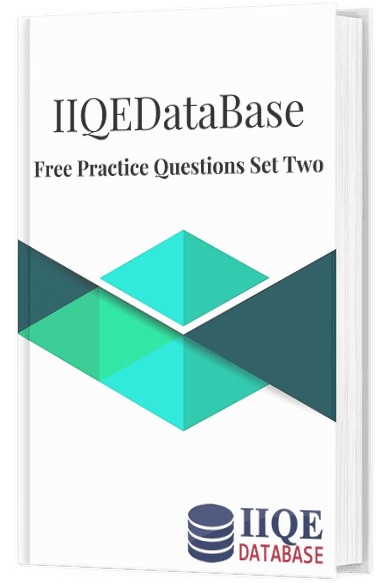Are you struggling to understand the complex world of IIQE claims handling and settlement in general insurance exams? Look no further!
In this article, we will explore key concepts and provide a step-by-step breakdown of the settlement process.
We will also address common challenges faced during claims handling and share best practices for effective results.
Get ready to dive into the intricate world of general insurance exams and master the art of claims handling.
Key Takeaways
- IIQE claims handling and settlement involves complex procedures.
- Gathering relevant information and evidence is crucial for claims documentation.
- Thorough investigation ensures fair and accurate claims settlement.
- Understanding the settlement process is essential for general insurance exams.
Overview of IIQE Claims Handling and Settlement
The overview of IIQE claims handling and settlement covers the main concepts and procedures involved in the process.
When it comes to claims documentation, it is crucial to gather all relevant information and evidence to support the claim. This includes policy details, incident reports, medical records, and any other relevant documents.
Claims investigation plays a vital role in determining the validity of the claim. It involves verifying the accuracy of the documentation, interviewing witnesses, and assessing the damage or loss.
This thorough investigation is essential to ensure fair and accurate claims settlement.
Now that you understand the importance of claims documentation and investigation, we can delve into the key concepts in general insurance exam claims handling.
Key Concepts in General Insurance Exam Claims Handling
Understand the key concepts involved in handling and settling claims in the general insurance exam.
To grasp the intricacies of claims handling and settlement, consider the following:
Claims documentation: Learn how to properly record and organize all relevant information related to claims, including policy details, incident reports, and supporting documentation.
Claims assessment: Develop the ability to evaluate claims by analyzing policy coverage, assessing the extent of damages or losses, and determining the validity of the claim.
Communication skills: Enhance your ability to effectively communicate with claimants, policyholders, and other parties involved in the claims process, ensuring clarity and understanding.
Legal and regulatory knowledge: Familiarize yourself with the laws and regulations governing claims handling, including privacy laws, consumer protection regulations, and industry best practices.
Understanding the Settlement Process in General Insurance Exams
To grasp the ins and outs of settling claims in general insurance exams, you need to familiarize yourself with the steps involved in the process. Once the claims assessment is complete, the next crucial step is claims negotiation. During this phase, insurance professionals work closely with claimants to reach a fair and equitable settlement. To give you a clearer understanding, let’s take a look at the following table that outlines the key steps in the settlement process:
| Step | Description | Purpose |
|---|---|---|
| 1. Document | Collect all necessary | Validate the claim and gather evidence |
| Gathering | documents and information | |
| 2. Investigation | Assess the validity and | Determine the extent of the claim and |
| coverage of the claim | gather additional information if needed | |
| 3. Evaluation | Analyze the claim and | Determine the amount that the insurer is |
| calculate the settlement | liable to pay to the claimant | |
| 4. Negotiation | Engage in discussions | Reach an agreement on the settlement |
| with the claimant | amount and terms |
Understanding the process of settling claims is essential for general insurance exams. It helps ensure fair and accurate assessments and negotiations. Now, let’s discuss the common challenges in claims handling for iiqe exams.
Common Challenges in Claims Handling for IIQE Exams
Facing challenges in claims handling for IIQE exams? Let’s explore some common issues that arise during the process.
Inadequate claims documentation: One challenge is the lack of complete and accurate documentation, which can lead to delays and disputes in claims settlement. Make sure to gather all necessary information and maintain proper records.
Inconsistent claims evaluation: Another challenge is the inconsistency in evaluating claims. Different examiners may interpret policies differently, resulting in varying claim outcomes. It’s important to understand the policies thoroughly and apply consistent evaluation criteria.
Complex claims scenarios: The complexity of claims scenarios can pose a challenge, especially when multiple factors are involved. It requires careful analysis and consideration of all relevant aspects to ensure fair and accurate claim settlement.
Time constraints: Time constraints can add pressure to the claims handling process. It is essential to manage time effectively and prioritize tasks to ensure timely resolution.
With these challenges in mind, let’s now move on to discussing best practices for effective claims handling in general insurance exams.
Best Practices for Effective Claims Handling in General Insurance Exams
Ready to learn some best practices for effectively handling claims in the field of general insurance exams?
When it comes to claims handling, communication strategies play a crucial role in ensuring a smooth process. It is essential to establish clear lines of communication with all parties involved, including the insured, claimants, and other stakeholders. This helps in managing expectations, providing timely updates, and addressing any concerns promptly.
Additionally, fraud prevention techniques are vital to protect the interests of both the insurance company and the insured. Implementing robust verification processes, conducting thorough investigations, and utilizing technology-driven tools can help identify and prevent fraudulent claims.
Frequently Asked Questions
What Are the Eligibility Requirements to Take the IIQE Claims Handling and Settlement in General Insurance Exam?
To take the IIQE claims handling and settlement in general insurance exam, you must meet certain eligibility requirements. These requirements may include having a certain level of education or experience in the insurance industry.
Additionally, there may be time limits in place, such as a deadline for submitting your application or a maximum number of attempts allowed.
It is important to thoroughly review the eligibility requirements and adhere to any specified time limits to ensure a successful exam experience.
Are There Any Time Limits for Completing the IIQE Claims Handling and Settlement in General Insurance Exam?
There are time limits for completing the IIQE claims handling and settlement in general insurance exam.
It is essential to understand the importance of this exam in the insurance industry.
With a passing rate of 65%, it is crucial to manage your time effectively during the exam.
You must answer all the questions within the allotted time to increase your chances of success.
Time management is key to achieving a high score in this exam.
How Often Is the IIQE Claims Handling and Settlement in General Insurance Exam Offered?
The frequency and schedule of the IIQE Claims Handling and Settlement in General Insurance Exam depend on the governing body. It is important to check with the relevant authority for the most up-to-date information on when the exam is offered.
Being detail-oriented and analytical will help you stay informed about any changes or updates to the exam schedule. Stay focused and prepared to maximize your chances of success on the IIQE Claims Handling and Settlement in General Insurance Exam.
Can I Reschedule or Cancel My IIQE Claims Handling and Settlement in General Insurance Exam Registration?
Yes, you can reschedule or cancel your IIQE claims handling and settlement in general insurance exam registration. The rescheduling requests are subject to availability and must be made within a certain period before the exam date.
However, please note that there might be a cancellation policy in place, which may involve a fee or forfeiture of the registration fee.
It is important to carefully review the terms and conditions regarding rescheduling and cancellation before making any changes to your exam registration.
Is There a Fee Associated With Taking the IIQE Claims Handling and Settlement in General Insurance Exam?
Yes, there is an exam fee associated with taking the IIQE Claims Handling and Settlement in General Insurance Exam. The fee covers the cost of administering the exam and maintaining the exam schedule.
It is important to note that the fee is non-refundable, so make sure you are prepared for the exam before registering. Additionally, be sure to check the exam schedule to find a date and time that works best for you.
Conclusion
In conclusion, by mastering the IIQE claims handling and settlement concepts, you’ll be well-prepared to navigate the challenges that may arise during the general insurance exam.
While some may argue that the settlement process can be complex, with careful preparation and attention to detail, you’ll be able to effectively handle claims and ensure a smooth resolution.
Imagine the satisfaction of confidently settling claims and demonstrating your expertise in the exam room.
With these best practices in mind, success is within your grasp.



